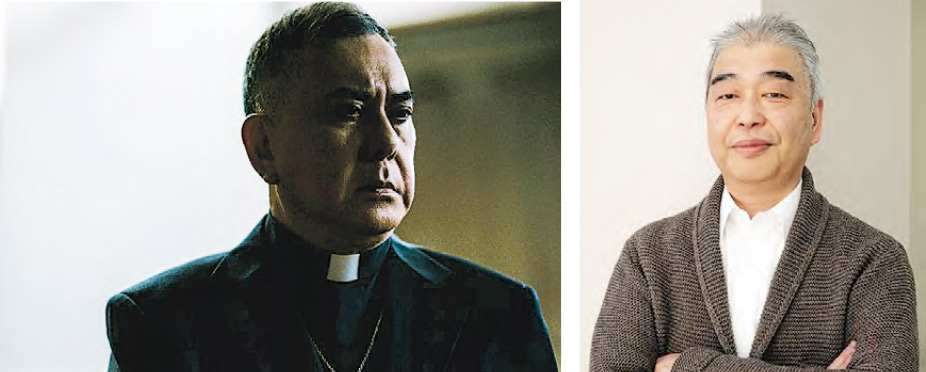Sunday, November 3, 2024
[2024.11.04] TOKYO FILM FESTIVAL PROGRAM DIRECTOR SAYS HONG KONG FILM IS CHANGING
Among the 15 selected films in the main competition section of the 37th Tokyo International Film Festival, 5 were Chinese films, including the Philip Yung Tsz Kwong directed Hong Kong film PAPA; the Tokyo Film Festival program director Kenji Ishizaka spoke about Hong Kong films are changing and restarting; he also mentioned the selection criteria, saying that the performance of directors and actors is equally important. He even made a special mention of "Asian Future" section selection VALLEY OF THE SHADOW OF DEATH (BUT SEH JI JUI)'s Anthony Wong Chau Sun for his outstanding performance.
At the 37th Tokyo International Film Festival the Yung Tsz Kwong directed, Sean Lau Ching Wan starred PAPA is in the main competition. The Michael Hui Koon Man and Dayo Wong Tze Wah starred THE LAST DANCE (POR. DEI YUK), the Oliver Chan Siu Kuen directed MONTAGES OF A MODERN MOTHERHOOD (FU DUK BUT) and the Wong Chau Sun starred VALLEY OF THE SHADOW OF DEATH (BUT SEH JI JUI) were selected for different sections.
The program director of the Tokyo International Film Festival Kenji Ishizaka said that many Chinese-language films were selected, which is a testament to their outstanding performance. He said that the film selections in the "Asian Future" section are more distinctive than in the past, "Several of them are co-produced by different countries or regions, such as the Japanese director Tetsuichiro Tsuta directed, STRAY DOG Taiwanese actor Lee Kang-sheng starred BLACK OX; Malaysia's Chong Keat Aun directed, Hong Kong-based (Fish) Liew Chi Yu and (Natalie Hsu) Hui Yan Yi starred PAVANE FOR AN INFANT, both of which have broken through geographical restrictions." Kenji Ishizaka pointed out that the film industry has fallen into a low point after the pandemic. In order to reduce the risk, cooperation from other countries was sought after.
When asked about the criteria for selecting the films, Kenji Ishizaka said that the performance of the director and the actor are equally important. He would first look at whether the director has added innovative elements, and then look at the actors. He pointed out that VALLEY OF THE SHADOW OF DEATH is the latter. "(Anthony) Wong Chau Sun played an paralyzed divorcee in STILL HUMAN (LUN LOK YUN), and this time he played a priest. Because of a tragedy in his family, he re-examined his faith. The two roles are completely different, and I feel that his acting skills have very broad range and his performance is very good."
Kenji Ishizaka felt that Hong Kong film is changing. "Hong Kong used to be dominated by action, comedy or romance films, but in recent years more and more dramatic films and new actors are emerging. I think Hong Kong films are restarting, but it will take some time for it to be popular." Speaking of the popularity of Korean films and dramas around the world but this year's Tokyo International Film Festival almost has not selected any, Kenji Ishizaka agreed that Korean films are of high quality, but the Busan International Film Festival was held in October and many new Korean films have been unveiled in Busan; the Tokyo International Film Festival requires that the exhibited works have never been released, so it is difficult for Korean films to be selected.
Selected for "Asian Future", BLACK OX's director Tetsuichiro Tsuta agreed that Chinese films have been excellent in recent years. He especially likes mainland director Gu Xiaogang's DWELLING BY THE WEST LAKE. He pointed out that the biggest difference between Japanese and other Asian films is value. "From a commercial point of view Japanese films can already make money from just domestic release, anime is a good example. Before I studied film, I have never seen works from other countries or regions. Then I saw the Thai film UNCLE BOONMEE WHO CAN RECALL HIS PAST LIVES, and I realized that the values Japanese films explore are very narrow. Movies should make the audience feel even more."
Subscribe to:
Post Comments (Atom)




No comments:
Post a Comment